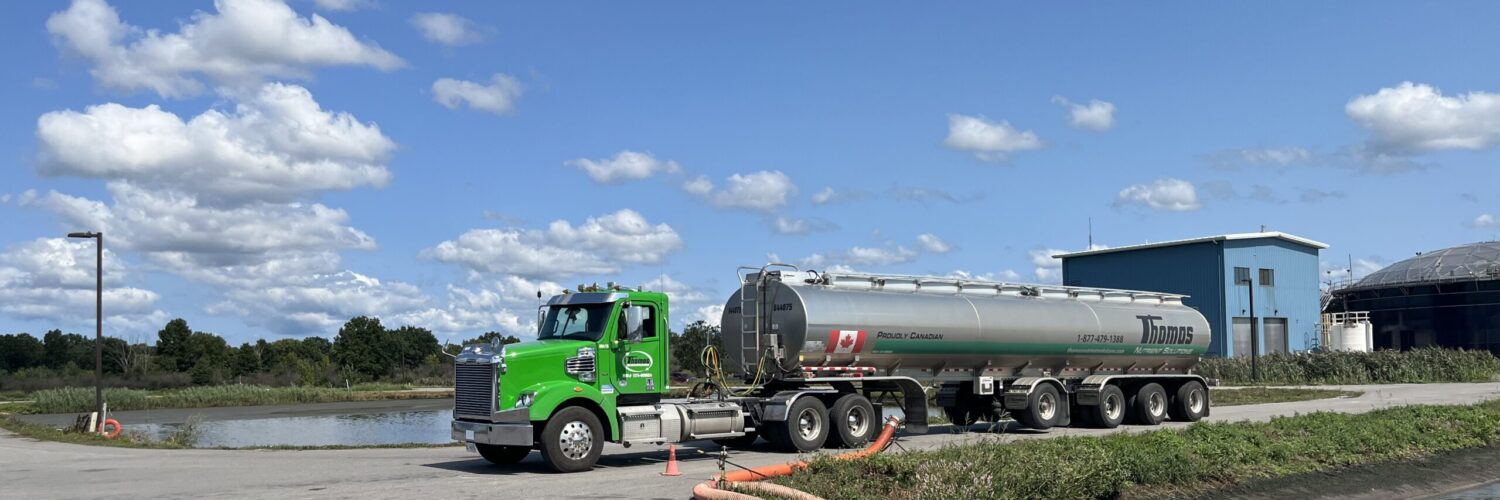Wastewater is generated by households, commercial businesses, and the industrial sector. It must undergo treatment before it is deemed safe to be discharged into water systems. Biosolids are a by-product of this process. They are primarily organic materials that can be recycled into fertilizers or used as soil amendment.
Although biosolids regulations in different Canadian provinces vary, standards are often based on the United States’ Environmental Protection Agency’s (EPA) Standards for the Use and Disposal of Sewage Sludge. It identifies two types of biosolids with regard to pathogen reduction: Class A and Class B. To be classified as Class A biosolids entails full destruction of pathogens to non-detectable levels. In addition, Class A biosolids must not exceed maximum concentrations for heavy metals. Once these requirements are met, then they are allowed to be used for agriculture and horticulture purposes.
Biosolids are compostable. Composting is a process that biodegrades organic waste under controlled aerobic conditions. Various microorganisms such as bacteria and fungi metabolize organic matter into simpler substances that possess nutrients that can support plant growth. During composting, organic matter is broken down into carbon dioxide, water, heat, and compost. The efficacy of the composting process relies on certain environmental factors such as oxygen, temperature, moisture, organic matter and microbial populations. It also depends on the ideal carbon and nitrogen ratio. Composting helps stabilize biosolids to destroy harmful pathogens, reduce odours and minimize vector attraction.
In general, biosolids have greater nutrient concentration compared to compost that is produced with biosolids because some nitrogen is lost during the composting process. Thus, biosolids are generally used as soil fertilizer, while compost is typically utilized as a soil amendment.
Here are some benefits of composting using biosolids:
• The composing process can result in a product that meets the requirements for Class A biosolids.
• It improves water retention of sandy soils allowing for nutrients to be better retained.
• It enhances aeration, water infiltration and drainage of clay soils.
• It helps prevent compaction since it improves soil structure. It can retain up to 10x its weight in water.
• It enriches the soil because it contains bioavailable nutrients that are released over several growing seasons.
• It is a proven method to suppress soil-borne pathogens and can prevent diseases associated with certain fungi.
• It can deter soil erosion and prevent the loss of top soil. Compost is beneficial in disturbed areas such as construction sites, landfills and restored watercourse banks.
• It can provide a biological method to degrade certain petroleum-based contaminants and lower the bioavailability of heavy metals.
• It can reclaim and restore industrial lands.
• It buffers soils against extreme chemical imbalances and minimizes the absorption of harmful chemicals and heavy metals.
• It is cost-effective since there is less need to use chemical fertilizers for soil improvement.
Composting of biosolids has been a successful practice in Canada. For example, at the City of Edmonton’s Waste Management Centre, about 22,550 dry tonnes of biosolids are co-composted annually with 200,000 tonnes of municipal solid waste, producing approximately 80,000 tonnes of compost. The City of Kelowna composts biosolids with wood chips and sells them under the brand Ogogrow. This is used as a soil amendment in landscaping and horticulture. Carney’s Organic Recycling in Squamish, BC composts biosolids that is distributed as soil amendment or as a feedstock in the production of fabricated soils. Approximately 50% of biosolids produced in Canada are recycled. The Canadian Council of Ministers of the Environment (CCME) supports the repurposing of biosolids and provides guidelines for their beneficial use on land.
If you are a farmer in the Niagara Region and are interested in considering biosolids as a potential application to your fields, please call us on 1 (877) 479-1388.
Sources:
http://www.compost.org/
https://www.ccme.ca
https://nepis.epa.gov

